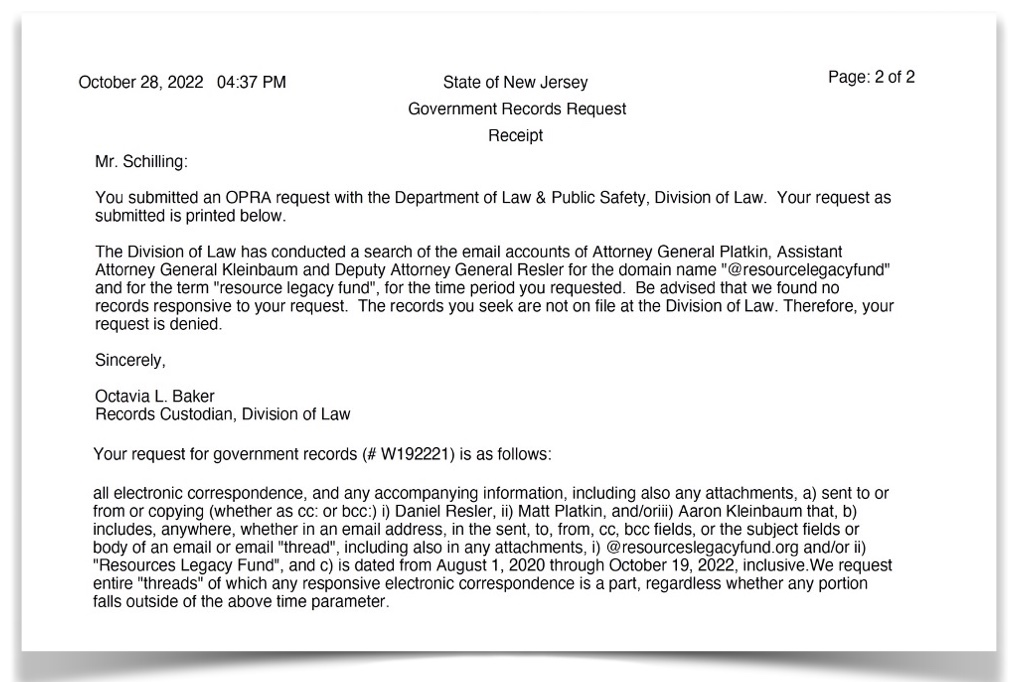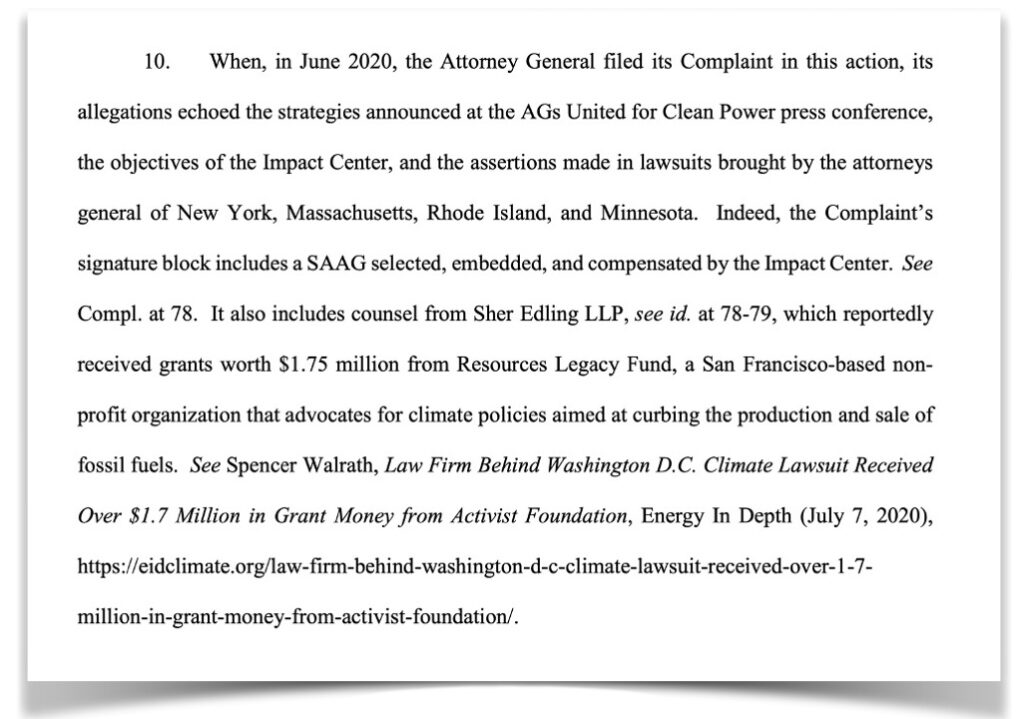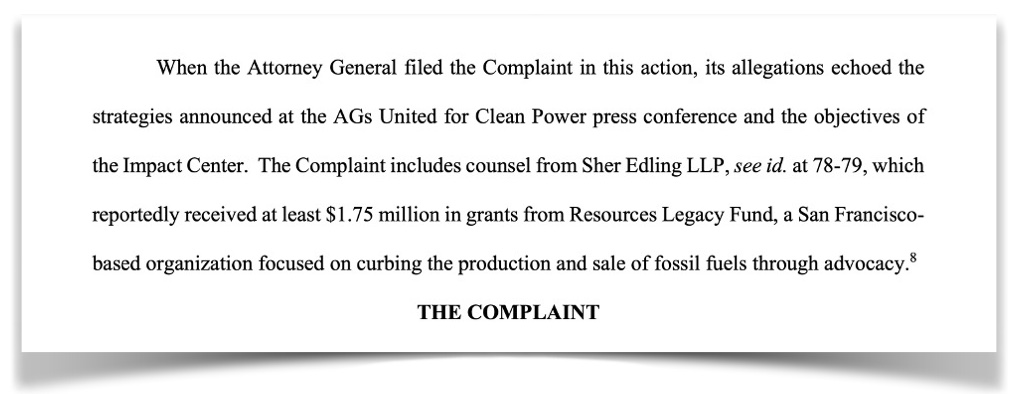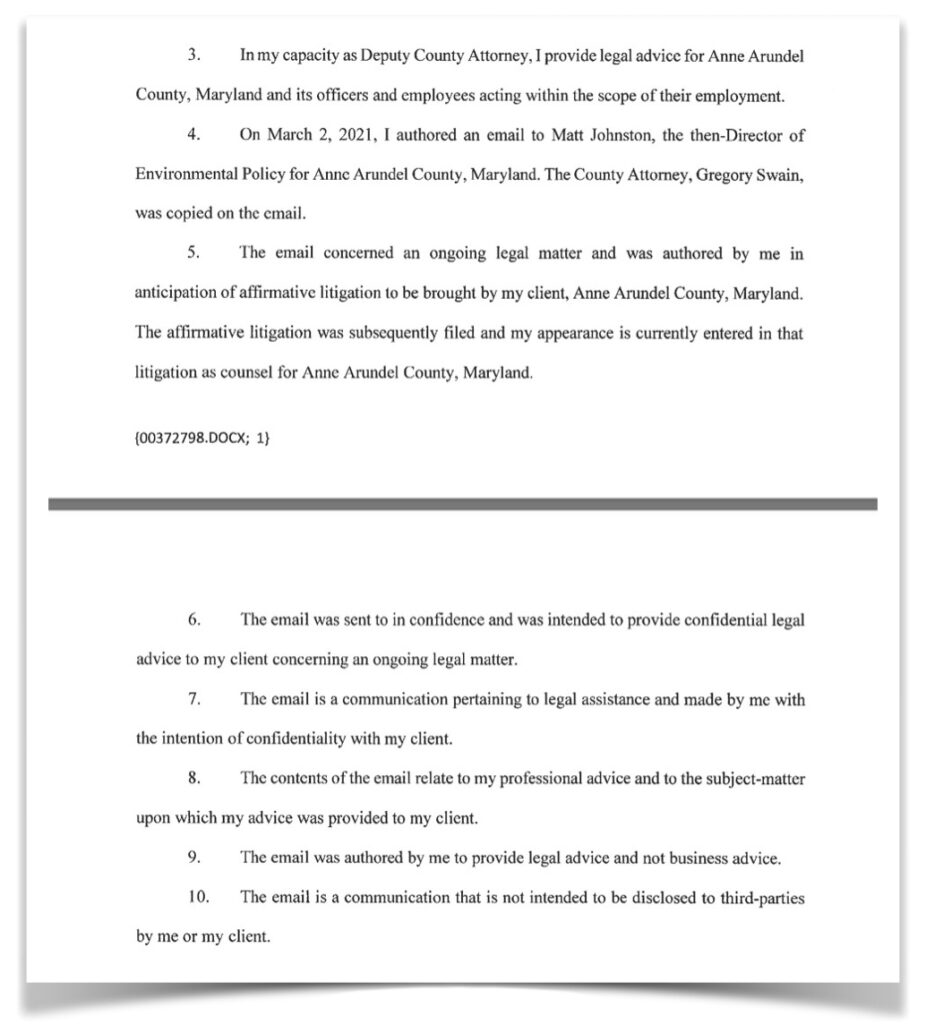CLW readers know that New Jersey recently joined the wave of “climate” litigants claiming that energy companies caused global warming, to the plaintiffs’ detriment, and seeking to extract hundreds of millions or even billions of dollars (each) and also influence or even change federal policy, effectively imposing an agenda repeatedly rejected by a majority of the country.
These suits began as nuisance actions which, after some setbacks in court, transmogrified into mostly “consumer fraud” claims. Similarly, after finding out the hard way that the federal courts offer no succor for these claims, the message became a fevered insistence that the suits were in reality a series of unrelated coincidental purely state law matters, with which the federal courts should not bother themselves despite the obviously coordinated, national campaign and designs on circumventing the proper democratic process for adopting policy.
New Jersey, too, hired the California law firm Sher Edling, LLP, to handle its case, a firm recently revealed to have received millions of dollars in “charitable grants” to support “healthy communities” and other buzzwords not exactly reporting what, emails show, the money actually was going for — these climate lawsuits.
Politicians then promised the same firm many, many millions each out of damages purportedly suffered by their taxpayers, to pursue the suits we now know the firm was already being paid to pursue. Obviously, that raises questions of disclosure — e.g., what did Keith Ellison know, and when did he know it: was he duped, or was he in on it? Which in turn raises the issue of elected officials’ fiduciary responsibilities to the state and its taxpayers.
The pass-through charitable grants to finance the politicians’ “contingency fee” litigation came from a group called Resources Legacy Fund, or RLF, which was financed by other entities routing the money there, including Leonardo DiCaprio Foundation.
Recently, Fox News reported that the RLF’s vehicle for this work, the “Collective Action Fund,” had been transferred to the New Venture Fund, the political Left’s financial “mothership” and “Liberal Dark Money Juggernaut,” as “A fiscally sponsored project of New Venture Fund, the Collective Action Fund for Accountability, Resilience, and Adaptation.”
So the money being used to pay for (“contingency fee”) climate litigation by activist politicians is now thrown onto this multi-billion pile then stirred and passed-through yet again. In short, while parties can now guess, this does a much better job obscuring the financiers of this rather questionable public-private partnership to file what a federal court once described thus (in a very similar context): “The point of the multi-front strategy thus was to leverage the expense, risks, and burden to Chevron of defending itself in multiple jurisdictions to achieve a swift recovery, most likely by precipitating a settlement.”
Bringing us back to New Jersey. Our friends at Energy Policy Advocates inform CLW that New Jersey’s Office of the Attorney General declares its principals involved in the new lawsuit have “no records” referencing RLF over the most likely period of time that they would have corresponded about such outside financing of its possible litigation — if they did correspond about it.

You see, New Jersey, Like Minnesota, South Carolina, and indeed nearly all plaintiff jurisdictions have rules of professional conduct that require “informed consent” by the client when someone else pays for its lawyers. So far, despite no small amount of digging, Energy Policy Advocates has found no record of any such consent among the Minnesota, et al. plaintiffs.
Energy Policy Advocates has found only one reference to RLF — outside of the Minnesota AG circulating the defendants’ notice of removal of the District of Columbia’s case from local court to federal court, and a subsequent brief, in which the defendants laid out for the court this scheme as suspected at the time.


This came from a climate plaintiff whose legal ethics rules are the anomaly in that they do not require informed consent, Anne Arundel County, Maryland. Anne Arundel has admitted to one email discussing the group, sent about eight weeks before it filed suit.

No other plaintiff jurisdiction has admitted to any correspondence mentioning “Resources Legacy Fund” or RLF’s email domain. Leaving CLW to draw the most obvious and reasonable conclusions.
First is that it seems inescapable that either the lawyers did not inform their clients who, under applicable ethics rules, absolutely had to give their consent to this arrangement; if that is the case it suggests the lawyers have some problems ahead of them. Alternately, they did so inform their clients but everyone (save one person, once, in Anne Arundel) kept to a strict omerta; if that is the case, the politicians who promised a massive double-dip to the lawyers out of supposed taxpayer damages, and any enablers, will face serious questions about their fidelity to fiduciary obligations.
Next, this March 2021 email is likely doing one of two things. It could be informing colleagues of something that Hamilton Tyler found on the internet, e.g., a law professor raising tax and ethical questions in July 2020 about what seemed at the time to be going on behind the scenes (subsequently confirmed). Second, Mr. Tyler could be discussing that which he had been informed and which had otherwise been reserved, in all other jurisdictions apparently, for the telephone: the firm on which we are about to bestow a generous contingency fee arrangement is already being paid.
Unless and until this email is released the public won’t know for sure which of these scenarios is the actual one. None of them look very promising for the parties involved.
The more curious aspect of this remains why there is no record of any such disclosure of the arrangement in the jurisdictions where that disclosure is required. CLW believes this aspect of the climate litigation industry is definitely one to watch.
